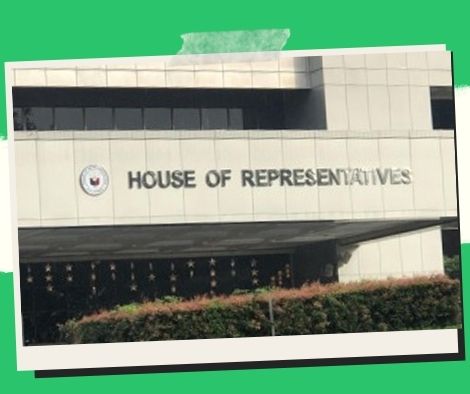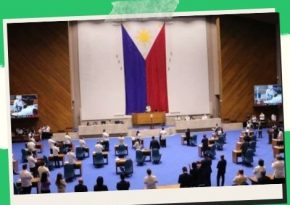
POGOs cause more moral harm than economic gain, says Solon.
Rep. Robert Ace Barbers of Surigao del Norte urged the government on Tuesday to heed lawmakers’ calls to outlaw the activities of Philippine Offshore Gaming Operators (POGOs), arguing that the moral harm these companies cause to society outweighs any alleged advantages they may have.
Barbers claimed in a statement that the majority of POGO franchises appeared to turn into the source of evil that brought vices and crimes into the nation, including “kidnapping for ransom,” prostitution, murder, extortion, illegal drug use, money laundering, human trafficking, graft and corruption, online scamming, and many others.
Barbers, the chair of the House of Representatives Committee on Dangerous Drugs, also stated that it is well known that gambling in any form, including online gambling, is prohibited or outlawed in China. POGO employees are based in this country because their schemes also harm their fellow citizens.
Reports further suggest that POGO enterprises have brought in prostitutes who only serve the thousands of POGO employees and other foreign nationals, in addition to the gambling-related crimes they have helped to establish. Payag na tayo na mag-import ng tao at kumpanya na gumagawa ng mga illegal na bagay, at gawing legal ang illegal sa ating bansa kapalit ng pera, at nasa ating bansa kapalit ng pera? (Are we okay with bringing in individuals and businesses who engage in criminal activity and make it legal here just for financial gain?)”
According to Barbers, at least 300,000 Chinese tourists have entered the nation since 2016, and almost all of them have become POGO employees. Some of them allegedly received orders to perform unethical tasks, including extortion, impersonating emails, and other types of criminality.
The legislator argued that the much-ballyhooed promise of the Philippine Amusement and Gaming Corp. (PAGCOR) that POGO activities would yield at least PHP32 billion yearly in crucial tax revenues is a total failure from beginning to end.
According to sources, the taxes that the Bureau of Internal Revenue earned from POGOs and the companies that provided their services decreased by 46%, from PHP7.1 billion in 2020 to PHP3.19 billion.
According to the Mindanao solon, the country’s loosely regulated influx of a sizable number of Chinese tourists who later became POGO workers is now turning immigration and law enforcement officials’ jobs into a nightmare because many of them are overstaying their welcome, have expired visas and work permits, among other infractions.
Barbers noted that of the more than 300,000 Chinese tourists who converted to POGO workers, concerned government agencies could not, as of this writing, provide precise information on their whereabouts, how many have expired visas and are overstaying, who has or has not been granted work permits, and how many have already left the country.
According to Barbers, the data provided by PAGCOR indicated that 32 POGOs and 127 service providers were authorized to operate in the nation; however, some of these online gambling companies are allegedly issuing unauthorized sub-licenses to unidentified or unregistered businesses, through which Chinese and other nationals from countries including Vietnam, Malaysia, and Myanmar, among others, were victims of human trafficking.
Regarding the Supreme Court’s ruling that the “double taxation” imposed on POGOs by Republic Act (RA) 11492, also known as the Bayanihan to Recover As One Act (Bayanihan 2) and RA 11590, also known as the amended National Internal Revenue Code, could be considered moot because it had been “overtaken by events,” according to Barbers.
The Bayanihan 2 Act was passed into law in September 2020 and lasted three months until it expired in December 2020. POGO businesses immediately challenged the Act’s taxing authority on the grounds of suspected double taxation. Additionally passed into law in September 2020, RA 11590 is still in effect today.
Before the passage of RA 11590 in September 2020, the SC ruled that applying a 5 percent franchise tax, value-added tax, and other applicable taxes on income from non-gaming operations received by POGO operators, agents, service providers, and support providers was unconstitutional.
The true issue at hand, according to Barbers, is whether the approved or existent POGO enterprises and their numerous sublicensees are remitting to the government the entire amount of taxes that they and PAGCOR agreed to collect.
Save/Share this story with QR CODE
Disclaimer
This article is for informational purposes only and does not constitute endorsement of any specific technologies or methodologies and financial advice or endorsement of any specific products or services.
📩 Need to get in touch?
Feel free to Email Us for comments, suggestions, reviews, or anything else.
We appreciate your reading. 😊Simple Ways To Say Thanks & Support Us:
1.) ❤️GIVE A TIP. Send a small donation thru Paypal😊❤️
Your DONATION will be used to fund and maintain NEXTGENDAY.com
Subscribers in the Philippines can make donations to mobile number 0917 906 3081, thru GCash.
3.) 🛒 BUY or SIGN UP to our AFFILIATE PARTNERS.
4.) 👍 Give this news article a THUMBS UP, and Leave a Comment (at Least Five Words).
AFFILIATE PARTNERS

World Class Nutritional Supplements - Buy Highest Quality Products, Purest Most Healthy Ingredients, Direct to your Door! Up to 90% OFF.
Join LiveGood Today - A company created to satisfy the world's most demanding leaders and entrepreneurs, with the best compensation plan today.



 Business Technology, Finance Technology & Information Technology
Business Technology, Finance Technology & Information Technology




